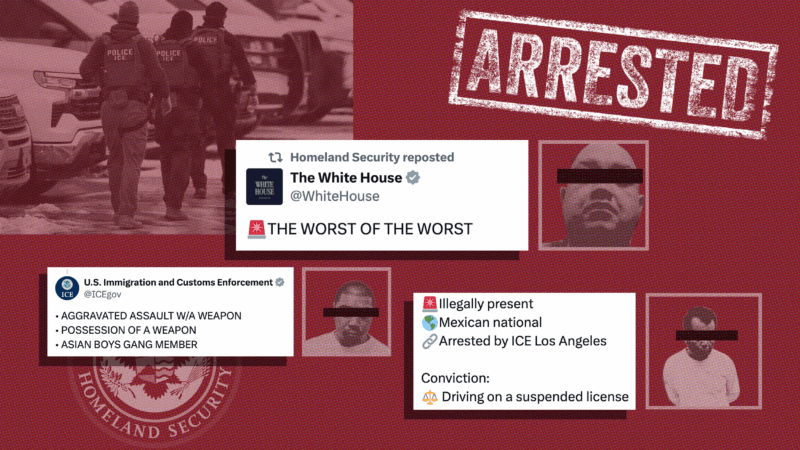Feds Say New IDs Needed to Fly…Just Not Yet
Peter Eipers is a researcher at UAB
When he’s not surrounded by lab equipment he and his wife like to travel. One of their favorite spots is New York City.
“We manage to get up there three or four times a year and each time we go we probably see two shows,” said Eipers.
Last year Eipers noticed a news story about REAL ID. This is a federal law passed in response to the 9/11 attacks. It puts new minimum requirements on states when issuing driver’s licenses and ID cards. The intent is to make them more secure. In Alabama they’re called STAR IDs and they’re optional. But these IDs are required to enter some federal facilities and they’ll be needed to fly domestically on a commercial airplane, although not yet.
Eipers didn’t want future vacations to be interrupted by the law. Since his license was up for renewal, he decided to make it a STAR ID. He gathered the extra documentation required, headed to a driver’s license office, and waited.
“That was the hardest part of the whole process,” said Eipers. “I think about four hours, I just waited to be called.”
He says it was a hassle. But now his driver’s license has a little gold star in the upper left corner denoting it’s a STAR ID
Eipers is among a minority of Alabamians. The state has issued about 96,000 STAR IDs since taking the program statewide in 2012. But that’s only 2 percent of all the driver’s licenses and ID cards.
Part of that may be because you have to get a STAR ID in person, forcing residents who want it to wait sometimes for hours at understaffed offices.
Alabama Law Enforcement Agency spokesman Johnathan Appling says with a budget crunch the state is short about 100 driver’s license examiners. He hopes people will use online options or self-serve kiosks to make room for those who have to conduct business in person.
Another reason for the low response rate to STAR ID may be because people simply don’t know about it. Appling says there are signs in driver’s license offices and courthouses, but not a bigger publicity campaign.
“Until we find out for sure when it’s going to take effect, we’[ve] kind of been holding off on the marketing,other than just the stuff we’ve already been doing,” said Appling.
That uncertainty surrounds the law. It originally passed in 2005. The Department of Homeland Security has delayed deadlines multiple times. There still is no deadline for the commercial flight requirement. The department just says it won’t happen before 2016.
Jim Harper is with the libertarian Cato Institute. He’s critical of the law calling it a national ID system. He says it’s a costly mandate that does little to increase safety. He doubts it will ever be fully implemented.
“Deadlines have come and gone and the so-called 2016 deadline is almost sure to go too,” said Harper.
Harper says if the commercial flight rules are enforced, he expects lawsuits.
“So I look forward to the day when people flying home to see grandma or people flying to Washington D.C. to visit with their legislator are told that they cannot travel because the Department of Homeland Security refuses people that won’t participate in a national ID system,” said Harper.
A DHS spokeswoman declined multiple interview requests. The department’s website says the policy is not a national ID system since states will issue IDs. Passengers will also still be able to fly using a passport if they don’t have STAR IDs.
Peter Eipers may be ready for that deadline, but it’s different for his wife. Her driver’s license was up for renewal this summer. Eipers says she intended to get a STAR ID, but she got busy. She simply renewed her regular license online from home.
Parents, are you sure your kid’s car seat is installed right? Here’s how to know
In this visual guide, certified car seat experts walk through common installation mistakes and how to fix them. Learn what a secure car seat base and a tightly fastened tether look like and more.
Trump announces ‘major combat operations’ in Iran
Israel and the U.S. have launched strikes against Iran, with explosions reported in Tehran and air raid sirens sounding across Israel.
Trump says he is ‘not happy’ with the Iran nuclear talks but indicates he’ll give them more time
U.S. President Donald Trump said Friday he's "not happy" with the latest talks over Iran's nuclear program but indicated he would give negotiators more time to reach a deal to avert another war in the Middle East.
Bill Clinton says he ‘did nothing wrong’ with Epstein as he faced grilling over their relationship
Former President Bill Clinton told members of Congress on Friday that he "did nothing wrong" in his relationship with Jeffrey Epstein and saw no signs of Epstein's sexual abuse as he faced hours of grilling from lawmakers over his connections to the disgraced financier from more than two decades ago.
How the federal government is painting immigrants as criminals on social media
Experts say this kind of media campaign is unprecedented and paints a distorted picture of immigrants and crime
Pentagon puts Scouts ‘on notice’ over DEI and girl-centered policies
After threatening to sever ties with the organization formerly known as the Boy Scouts, Defense Secretary Hegseth announced a 6-month reprieve







